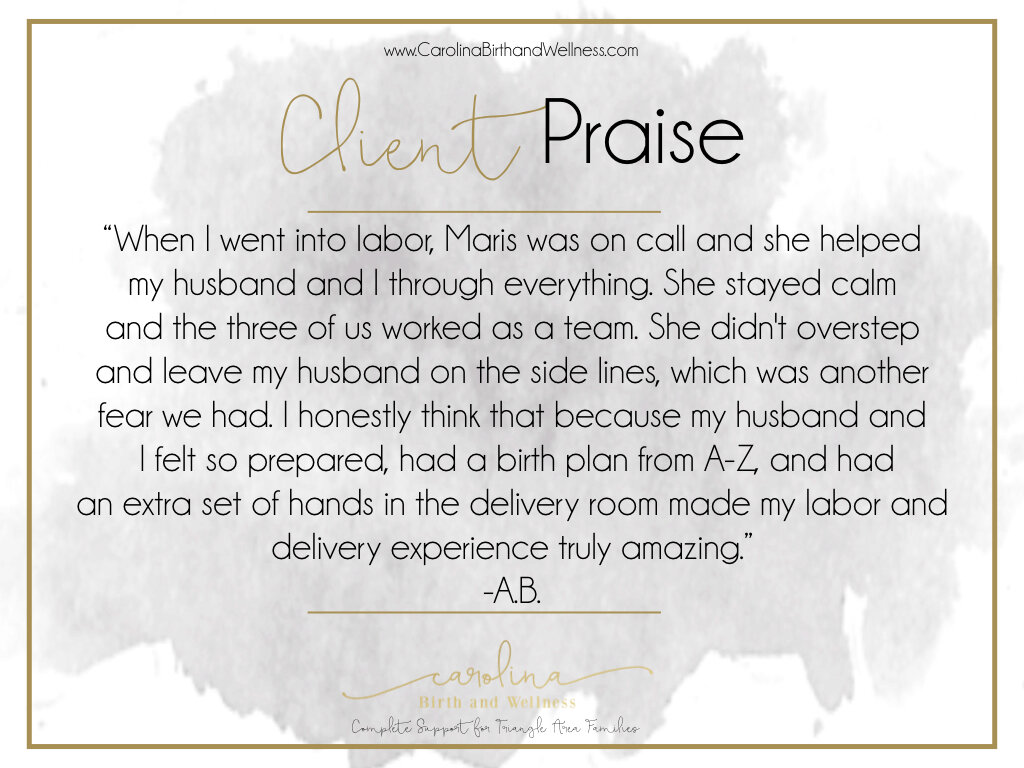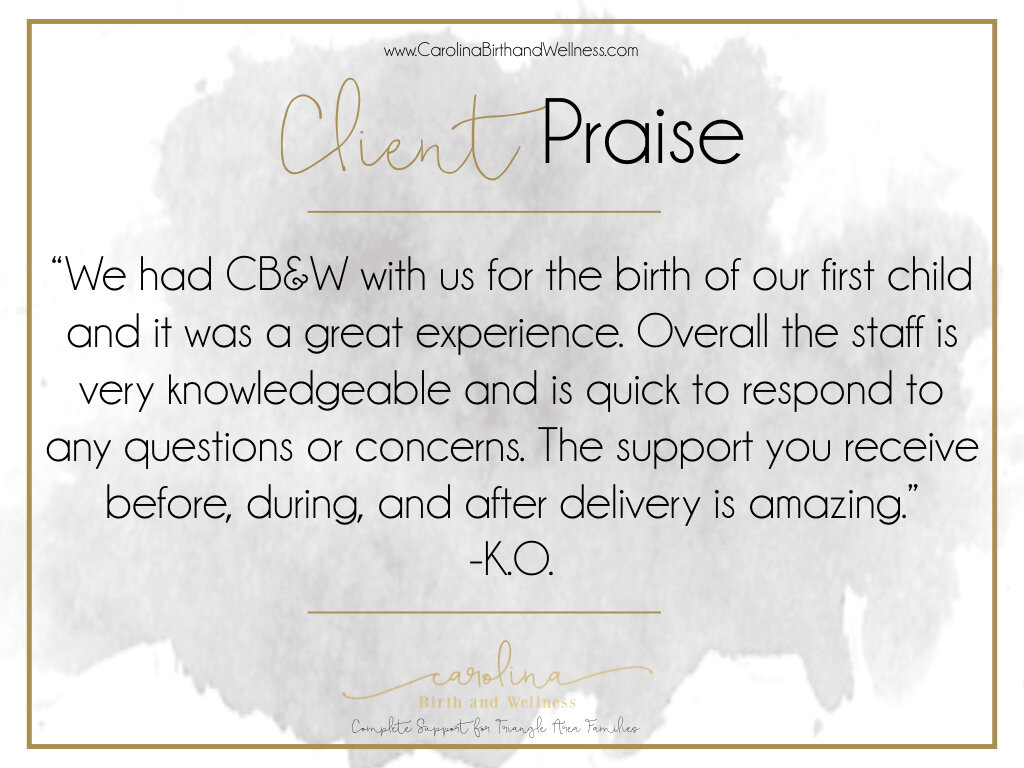Am I In Labor?
Probably the single most common question we get from our clients during our first prenatal appointment is “how will I know if I’m in labor?” And while there are many variations of labor, there is one single common phrase we use with all clients: you don’t have to know when you hire a doula.
Our Doulas are Available 24/7
You may feel something, and rather than googling or calling your doctor or midwife, your doula is always available for support and guidance. We can reassure you what you are feeling is normal, suggest when to get in touch with your medical team, or even if we should head over to your house. Whatever decision we make together, the bottom line is we are there with you every step of the process.
Doulas Are Your External Brain
While we have no medical training, and cannot distinguish between the various types of contractions, we are always available to talk through what you are experiencing. We can suggest some various techniques that may give you more information about what you are feeling to make a better decision of the next step. If the feeling you are experience changes, or even doesn’t change, that can be valuable when using your BRAIN to make the next decision.
What You May Be Feeling
While everyone may not experience all of the following, we have compiled a list of different common feelings you may experience that feel like they could be (or are in fact are) signs of labor.
Braxton Hicks
Braxton hicks feel like a complete tighten of the uterus, rather than a wave starting at the top of the uterus moving downwards. They can be relatively short, or last longer and tend to not have a peak of discomfort, rather a consistent tightening.
How doulas can help with Braxton hicks: We can remind you to do a little self care, and relax. Generally Braxton hicks are short, and a big glass of water can help reduce or eliminate them, or even a call to your medical team to ease any lingering anxiety.
Prodromal Labor
Probably one of the most challenging experiences that can happen while you are pregnant. Prodromal labor is when you experience random contractions, but never progress. You can have these for days or sometime weeks.
How doulas help during prodromal labor: this is all about the emotional support here. You may feel frustrated, tired, and defeated that labor still hasn’t started. Our doulas can be a supportive ear to listen as you voice your valid frustrations, and even help make a plan for how to deal with any more contractions you may experience that are classified as prodromal labor.
Early Labor
During this time, you may feel contractions but they tend to not be too normally spaced or too intense. You probably can walk and talk through the contractions.
How doulas hell during early labor: we can either provide phone support or in person support, but we encourage our clients to be in contact with their medical team while also relaxing a bit. Early labor can be long, especially for first time moms, so saving your energy at this point is important. We also can beginning to develop a plan for when you will head to your birthing location if you are not already there.
Active Labor
Things are getting real now! You probably need to focus a bit more during contractions, the feeling is more intense, and hopefully you are at your birthing location or in route.
How doulas help during active labor: this is where our physical support is key. Massage and counter-pressure are heavily used for both those planning for an unmedicated or medicated birth.
Transition
This part is intense, there is no denying that. This portion is defined from 8-10 cm, and offer sometimes the hardest part of labor. You may feel a bit out of control, you may feel pretty uncomfortable, but that is all normal.
How doulas can help during transition: We tend to be a calming energy in the room at this point. Hip squeezes sometime aren’t enough, but the physical sensation of our hands on you may be reassuring that you can get through this period.
Pushing
Just as the name implies, this is when you are pushing, sometimes it only takes a few pushes, and sometimes it takes a few more.
How doulas can help during pushing: We can either be at your head or feet, supporting your legs, or holding your hand, as you push this baby out! We work with your partner and medical team to make sure you are as comfortable as possible!









